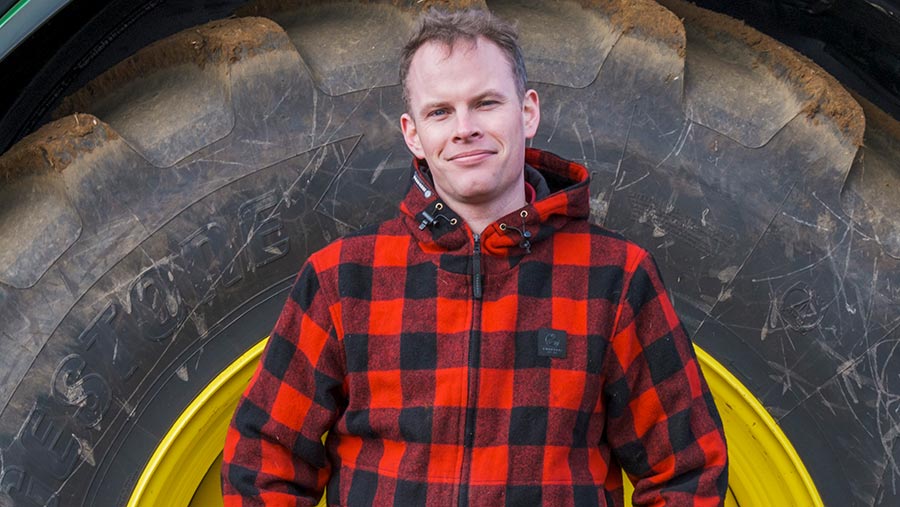Farmer Focus: British Sugar’s behaviour with NFU is alarming
 Robert Scott © Jason Bye
Robert Scott © Jason Bye Winter is here in Norfolk. The clocks have changed, the heating has been turned on, store lambs have started to arrive from the North, and our hedgecutter is out.
Like many of my peers, my attention was drawn to price negotiations between British Sugar and our representative, NFU Sugar.
At the time of writing (8 November), no contract has been agreed between them.
See also: Defra tells NFU and British Sugar to resume beet price talks
As a monopoly processor, British Sugar’s recent circumnavigation of the negotiation process with NFU Sugar has been alarming to witness.
I am very pleased to see NFU Sugar is not kowtowing to these tactics, and I urge all growers to stand firm and united if we are to continue with sugar beet.
Beet has been an important crop in rotations in Norfolk since the 1920s, and does provide a useful break crop in an all-arable rotation, when grown on the right land.
Despite the nostalgia, I’ve come to dislike growing beet because of the increasing risk involved.
Furthermore, it does not sit well alongside the direction of travel set by our government’s environmental and carbon agenda.
It is cultivation heavy, and more often than not the harvesting process damages soil structure. This is perhaps the nature of the job with large, modern equipment working on land in winter.
Sugar is not only bad for our health, but bad for the bank account, with expensive specialist equipment and costly haulage all necessary to grow it.
I had been reducing my own farm’s acreage year-on-year until last year, when we maintained what we were growing as world prices rose and sugar supply in East Anglia became short.
At last, the gross margin was worth the risk, hassle and complaints, and I was happy enough to continue to grow the crop.
We managed to harvest 82ha of sugar beet in late October before the heavens opened. A further 120ha of beet will have to wait until later this winter.
My trial patch of sunflowers is still unharvested, and they are looking very sorry for themselves. We had two failed attempts to harvest them in mid-October, before they were ready.
The crop is now sodden and the remnants of seed are keeping the birds well fed.
Despite climate change, it appears Norfolk’s autumns are not yet on a par with southern France for harvesting.


